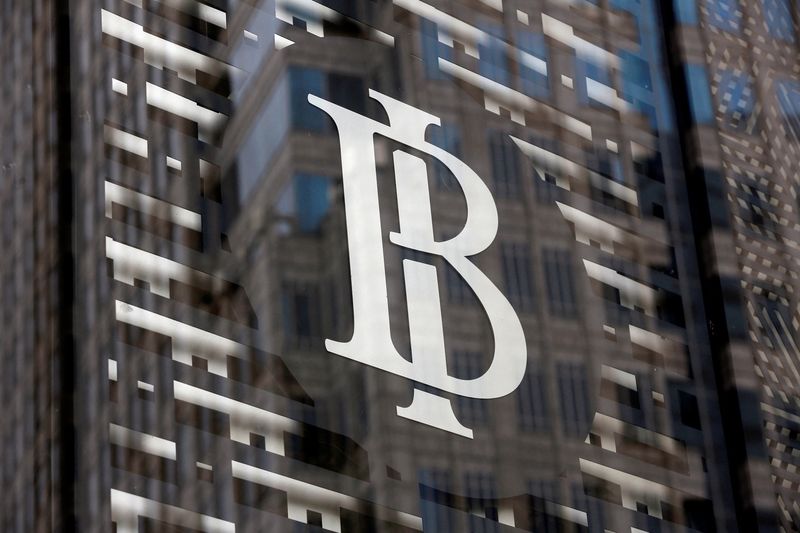Marketmind: BI and BSP decide on rates
2023.02.15 17:09

© Reuters. FILE PHOTO: Bank Indonesia’s logo is seen at its headquarters in Jakarta, Indonesia, January 17, 2019. REUTERS/Willy Kurniawan/File Photo/File Photo
By Jamie McGeever
(Reuters) – A look at the day ahead in Asian markets from Jamie McGeever.
Central bank policy decisions in Indonesia and The Philippines grab the limelight in Asia on Thursday, giving investors a rare diversion from the dramatic repricing of U.S. rate expectations that is increasingly defying logic for world markets.
Or rather, it is the reaction of world markets and risky assets to the repricing that is increasingly defying logic.
This year global stocks are up 8%, Asian stocks excluding Japan are up 5%, hit a record high, the is up 7%, and the Nasdaq is up an eye-popping 15%.
U.S. high yield corporate bond spreads are near the nine-month tights of earlier this month, and investment grade spreads are near the 10-month tights of only a couple of weeks ago.
This has come amid an astonishing rise in U.S. bond yields, market-based implied rates, and Fed policy expectations.
According to U.S. ‘SOFR’ rate futures the implied year-end Fed policy rate is now above 5% – four months ago it was 4%, and six months ago it was only 3%. Whisper it, but a 6% terminal rate may not be completely off the table.
Aren’t rising rates and yields meant to dampen risk appetite? There are a few possible explanations – investors are still heavily underweight equity, plentiful global liquidity, a soft or even ‘no landing’ scenario for the U.S. economy – but it is still a bit of a head-scratcher.
In Asia, Bank Indonesia (BI) is expected to leave its key interest rate unchanged at 5.75%, which could mark the end of a short six-month long hiking cycle. Inflation in Southeast Asia’s largest economy hit a seven-year high of 5.95% in September but slowed to 5.28% in January.
The Philippine central bank (Bangko Sentral ng Pilipinas), meanwhile, finds itself in a tighter spot and is expected to deliver a second straight half-point hike in its benchmark overnight rate, to 6.00%. Inflation is at a 14-year high and, unlike other Asian economies, it is showing no meaningful signs yet of cooling.
Hawkish guidance from the BSP and BI on Thursday could support their respective currencies. But with U.S. cash equivalent – 6-month T bills – now offering 5%, it will have to be pretty tough talking to tempt traders away from the dollar.
Also on the data calendar on Thursday are the latest snapshots of Japan’s trade balance, and unemployment in Hong Kong and Australia.
Here are three key developments that could provide more direction to markets on Thursday:
– Indonesia rate decision
– The Philippines rate decision
– Japan trade (January)
(By Jamie McGeever)








